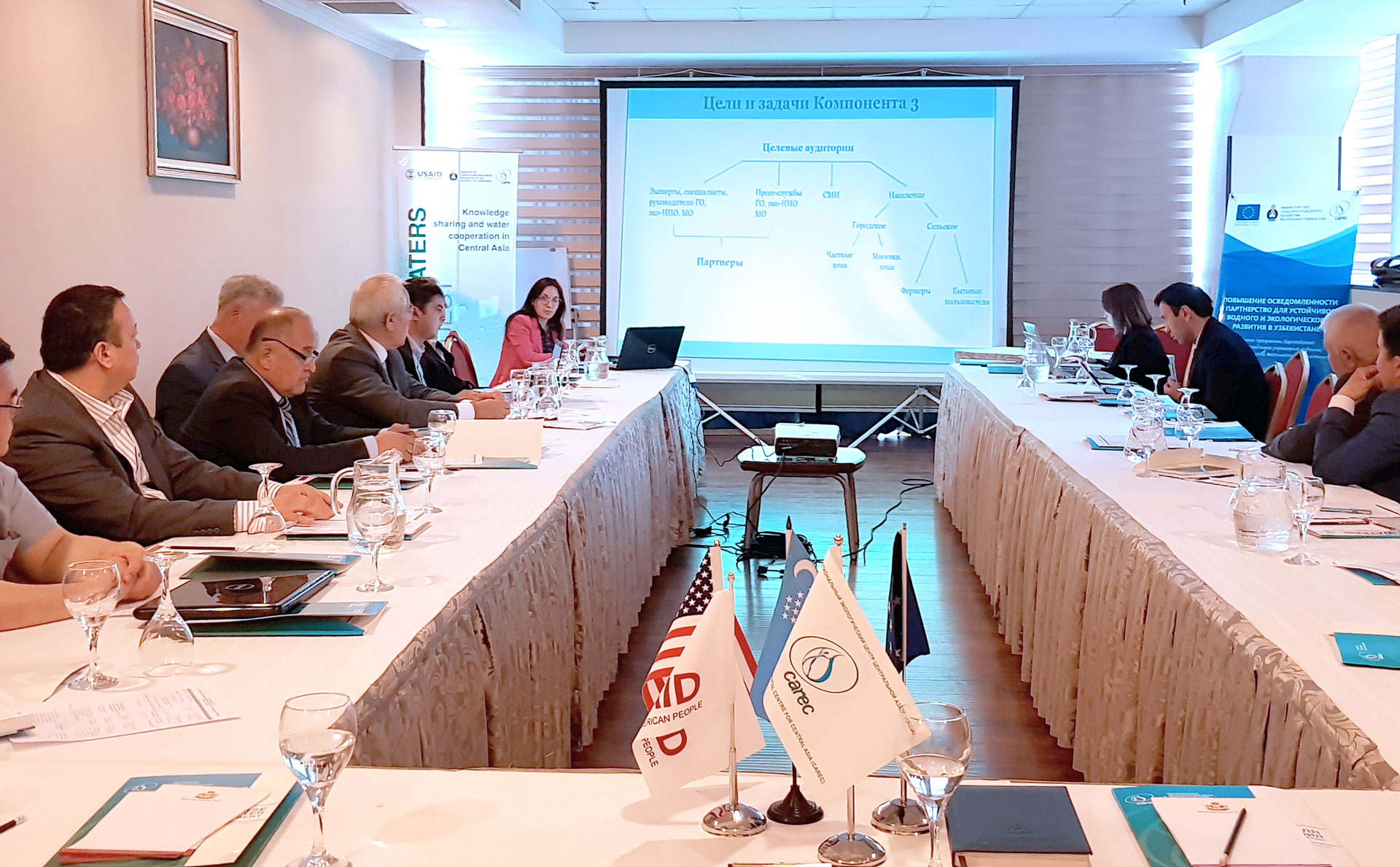
On April 26 the Regional Environmental Centre for Central Asia organised a seminar “Improving water resources management – CAREC initiatives” in Tashkent. The specialists of the centre presented the ongoing process and results of several projects of CAREC Water Initiatives Support Programme.
The participants of the event were the representatives of the Ministry of Water Resources of the Republic of Uzbekistan, the Ministry of Justice, the Tashkent Institute of Irrigation and Agricultural Mechanization Engineers (TIIAME), regional basin irrigation system authorities (BISA) from Uzbekistan, as well as international partners such as USAID, European Union Delegation to Uzbekistan, GIZ, and UNDP.
The information on the progress and results of the following projects in the field of water resources management and water diplomacy was provided to the participants:
Smart Waters Project, funded by USAID.
CAREC specialists gave information about current results and further plans, discussed with participants issues which require further solutions at the national level with the support of international organizations. The main aim of the project is to form the system that allows solving the issues of lack of specialized knowledge on water resources management in the region, establishing relationships between water managers and specialists, and demonstrating the potential of the basin approach to water management and cooperation with academic institutions.
UzWaterAware Project, that is aimed at raising the awareness and strengthening partnership for sustainable water and environmental development in Uzbekistan. The project is funded by European Union within “Sustainable Management of Water Resources in Rural Areas in Uzbekistan” Programme.
The attention was paid to the importance and relevance of raising the awareness of population on necessity in the efficient and productive use of water resources and environmental protection in terms of climate change.
The creative approach of communication strategy was presented to participants as well as further work plans with all target audiences.
CAWECOOP Project, funded by the European Union and completed in 2017.
One of the significant results of the project was the development of the interactive map of the best practices of Central Asia, which allows virtually to collect all the data for the last few years and to open online access to them. During the presentation, it was noted that the possibility of implementing the phase II of the project is being considered, taking into account its importance and relevance.
Project “Study of the impact of climate change on surface water quality in the Amu Darya basin”, funded by USAID. The aim of the project is to assess the impact of climate change on the quality of surface waters of Amudarya River under various scenarios of climate change, irrigation practices and ways of managing water resources; providing research results to a wide range of stakeholders to develop possible adaptation measures.
Innovation and Scientific Research Cluster under TIIAME. This is one of the most important CAREC initiatives on accumulating knowledge and experience of implementing water projects as well as widening research capacity of TIIAME specialists and students. The cluster is planned to be a think-tank on water resources management.
The goal of each of these projects, that has been mention by CAREC specialists, is to support the governments of the countries in solving joint issues and finding relevant solutions.
The active discussion started after all presentations, and the participants of the event received answers to various questions and talked about inter-project and inter-organizational cooperation within the implemented projects. CAREC specialists expressed their confidence that, despite the fact that such events do not bring immediate results, the discussions will have a positive impact on the attitude towards water resources in the country in the long term.
It should be noted that such introductory seminar was held in Tashkent for the second time. Find more information about the first event by the following link.
